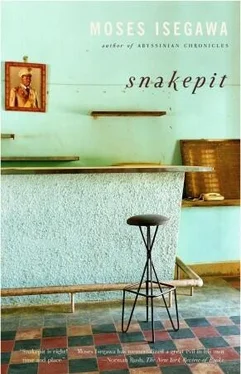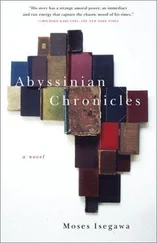A year later he heard that the famous astrologer had prophesied his coming messiah-style. The news was unbelievable to him because he did not believe in astrology. He believed in hard work and a lucky break or two, but not in omens read from the sky or from the livers of bulls. He had come across witchcraft in the past in southern and northern Africa, but he never paid it much attention. He was not going to begin now. He just made it a point to avoid the astrologer, which was easy since he was so reclusive; and he neither liked nor hated him.
According to Ashes, Amin welcomed him with open arms because, like many tyrants, he was lonely amidst a crowd of worshippers, sycophants, wives. He needed a confidant, somebody of his level, a mirror to make the enchanted nebulous world he inhabited real, a thorn to prick him with the occasional pang of inadequacy he needed to spur him on. His knowledge of the West and his ability to analyse it was just a bonus. In fact, it wasn’t as if there was a shortage of learned men who could feed Amin the information he needed. It was just that they could not get away from their high-couched language, the intricacies of their trade. They ended up confusing the Marshal, making him change plans he had approved, thus losing face. Ashes specialized in chewing cud for the Marshal; and he was ready to fulfil his role as cattle prod, keeping the generals on tenterhooks.
Robert Ashes was given the job of turning Amin’s bodyguard, the Eunuchs, into a specialized unit. The fact that they were all Kakwas and Nubians lessened the internal divisions. They knew that their life depended on Amin’s staying alive. Ashes found many of them dull, violent, predictable, but those were the qualities needed. All he did was drill them harder, teach them the necessary tactics, and let them loose.
Amin put them under the command of Major Ozi, increased their salary, improved their food and told them they were above all army officers and security agents. Both Amin and Ashes knew about the atrocities committed by them — robbery, kidnapping— but they turned a blind eye.They felt that a bit of leeway would only make them more loyal to their president. Ashes enjoyed stories of conflicts between the State Research Bureau and the Eunuchs. The Eunuchs liked to provoke the Bureau by driving them out of bars and night-clubs and taking their women. Ashes felt that divisions between the security agencies were always good. No conspiracy possible. Everybody on their toes.
Ashes was wearing it well. He loved to tease the generals and their men. They could hate him all they wanted but could not kill him, not without killing Amin first. He had the odd nightmare of waking up amidst a successful coup and finding Amin swinging from a tree by his balls. It always ended with a gun in his mouth. But he loved danger; he thrived on it. He had his own personal army now, and he liked to flaunt his status as a warlord. He had this thing with General Fart, as he called Bazooka in private. He knew that the man was insecure about his position, his future. He was cocksure that the man was infected with the vertigo of those who rose to prominence too early in life. He enjoyed teasing him, making him feel as if Amin was about to skewer his balls and make him eat them for breakfast. He could have made him beg over that Saudi deal; the rival prince had given him all the details. General Fart’s head could have rolled. But he had not liked the Saudi prince, a shapeless, unpleasant mass of a man. Nobody talked to him as if he were a messenger boy and got what he wanted.
Luckily for General Fart, at the time, Ashes had been busy putting the finishing moves on the deal which would have earned him millions. He had made a deal with Alan Witherthrush, known as the Big Bossman to everybody, who was the head of Copper Motors, to import spares for military helicopters, Stinger jeeps, Leyland buses and lorries. He was bound to cream off a clean ten million dollars through inflation of prices and commissions. Amin had approved the deal, and the spares were already on the way. According to plan, his millions should already have been paid into his account. When he confronted Bossman about it, he was told to wait. He waited because he wanted to handle the affair carefully, without the Marshal knowing about it. But when nothing changed, he realized that Big Bossman had cheated him.
The head of Copper Motors deeply resented Robert Ashes’ interference in the affairs of his company because Ashes did not have any sense of history, any respect for what Witherthrush had been through to keep it going. Copper Motors had begun as a branch of a multinational company that mined copper and cobalt in Kilembe, in the South-western Region, and was further involved in small-scale manufacturing. The copper plant and the manufacturing divisions had folded soon after Amin came to power. The foreign employees had cleared out. Big Bossman had found himself in a precarious situation: he could leave and work in Kenya or South Africa, or take a gamble and rebuild the flagging motor division. He decided to stay; he reorganized; he hired and fired; he blackmailed and curried favour. With great success. By 1973 he was the sole importer of spare parts for the whole country. Competitors came and went, leaving him stronger. Barclays Bank remained his faithful banker, switching money, transferring bribes, offering loans, maintaining the mechanism which kept the company solvent.
The first meeting between Bossman and Ashes had been acrimonious.
“I want a cut of the action,” Ashes dourly demanded. “It is protection money. I want shares, a partnership.”
“You are joking,” Big Bossman said, laughing.
“We will see,” Ashes said in parting.
Ashes swallowed the insult, went home and decided to contact the Bossman’s deputy. He threatened to link him with guerrillas if he did not comply. The man refused. Ashes hanged him, making it look like a suicide. The next time he held talks with the Bossman, the latter obliged. Ashes was made a partner. His contribution to the mega-deal had been to make Amin approve and finance the importation of the biggest haul of spares in years.
At that time, Bossman realized that Ashes wanted to take over everything. It was clear that his dream was ending. He and his wife decided to exit with a big bang. Friends at Barclays Uganda and Barclays Britain transferred Ashes’ cut not to his account, but to a secret numbered account in the Cayman Islands. At about the same time, the Bossmans sent their only son abroad and made him sole beneficiary of their fortune. Just in case. Mrs. Bossman was supposed to follow a fortnight later. Her husband would leave last. They had planned to travel separately so as not to arouse suspicion.
But Ashes knew very well that the only way to make Bossman tell him the truth was to go for the softest target: his wife. It was also insurance in case Bossman managed to get away or decided to tell Amin what was going on. Ashes sent his men to abduct the woman. They arrived in Euphoria 707s, surrounded the compound, cut the phone, stormed the house, gagged her, threw her in the boot and drove off. At their rendezvous they transferred her into a Shark helicopter which took her to Ashes’ island, the base of the Anti-Smuggling Unit.
The island was five kilometres long and three kilometres wide at its widest. It was full of chunky, imposing rocks, extremely tall grey-trunked trees filled with the song of yellow-legged parrots and other birds. From the distance, it looked like a green, grey-stemmed blur, dovetailed by rocks. There were houses, gun emplacements, speedboats, and a massive bunker Ashes used as his headquarters. The island sat by itself in the water, battered by moody waves, combed by sharp-toothed winds. It conjured up images of enchantment, freedom, glorious isolation, especially when viewed from a distance on a bright sun-drenched day.
Читать дальше











